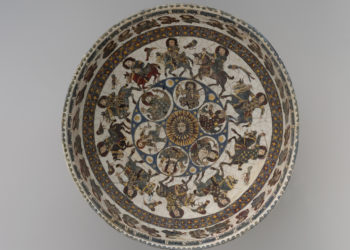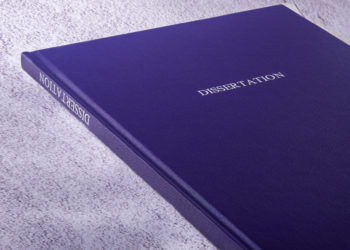The Association of College and Research Libraries’ (ACRL’s) biennial conference kicks off tomorrow in Cleveland, Ohio. The ACRL 2019 conference theme is “Recasting the Narrative” — reflecting the rapidly evolving nature of academic librarianship and calling participants to examine new roles, transitioning services, and developing identities. April 10-13 will be jam-packed with papers, panels, roundtables, and poster sessions as well as opportunities for networking and seeing the latest services and products on display in the exhibits.
If it sounds like I’m excited, I am. You’d expect that of a past-president of ACRL, right? However, it isn’t just my associational allegiance that draws my attention. A perusal of the conference tags, online program, and online papers quickly shows the rich offerings in all areas of academic librarianship. Since this is The Scholarly Kitchen let me highlight just a few of the offerings related to scholarly communications and publishing that caught my eye as relevant to both librarians and publishers and thus are on my “must attend” list.

First and foremost, the session I am most anticipating is the Ithaka S+R Faculty Survey 2018: First Release of Key Findings. Christine Wolff-Eisenberg and fellow Scholarly Kitchen Chef Roger Schonfeld will be presenting the results of their ongoing study on the attitudes and behaviors of faculty in the United States. I’ve been tracking this triennial survey since 2006 and the trends it reveals. I have to think that we will see a number of changes since the last survey in 2015 given the changes in research technology and policymaking since then. I am particularly interested to see the findings related to research workflows, perceptions of the role of the library, learning analytics, and factors impacting scholarly communications and publishing behaviors.
Similarly, the disciplinary analysis reported in How Faculty Demonstrate Impact: A Multi-Institutional Study of Faculty Understandings, Perceptions, and Strategies Regarding Impact Metrics is very intriguing. The paper [PDF] reports on the results of a survey conducted at the University of Minnesota, the Ohio State University, and Valparaiso University and incorporates results from a previously administered survey at the University of Vermont. Having read the paper in the online proceedings, I’m very interested to hear Dan DeSanto, Caitlin Bakker, Jonathan Bull, Aaron Nichols, Jenny McBurney, Allison Langham-Putrow, and Nancy Courtney reflect on how these results might impact the development of library and publisher services.
Grappling with the impact of predatory/fraudulent publishers continues to vex many a librarian and researcher. Nicole Webber and Stephanie Wiegand conducted a mixed-methods study of faculty knowledge, experiences, and attitudes regarding fraudulent journal operations. I’m particularly appreciative of the qualitative data that they report in Black & White Response in a Gray Area: Faculty and Predatory Publishing. Given the many views pro/con related to journal blacklists, I’m interested in the reaction to their paper [PDF], particularly that “faculty with low awareness of predatory publishing suggested the benefit of blacklist-type tools without the knowledge that these or other tools exist.” Their comment that “faculty do not associate the library with publication assistance, but they do desire more support in identifying fraudulent and low-quality journals” sets out a challenge for the profession.
Additionally, given my own participation in the panel (Re)Casting Call: Sculpting Services and Strategies for Cultivating Online Scholarly Identity, in which I will present strategies for assisting researchers in curating their online scholarly presence, I’m looking forward to Trending Now: Recasting Services to Support Scholarly Identity Work. Marie Radford, Vanessa Kitzie, Stephanie Mikitish, Diana Floegel, and Lynn Silipigni Connaway will be reporting on practices researchers use in creating and managing scholarly identity via online platforms.
I will also be participating in three other sessions not immediately related to scholarly communications but of course I’d still love to see Scholarly Kitchen readers in attendance: From Value to Values: Information Literacy, Capitalism, and Resistance, At-Risk Students: Needs and Responses in the Information Literacy Classroom, and ACRL RoadShow Showcase: Move Your Library Forward with Local, Affordable, In-Person Training.
Finally, I noticed that Todd Carpenter, another Kitchen fellow Chef, is a panelist for Let’s get Engaged in Policy: The Who, What, and How of Building Government Support for Libraries. We’ve all heard the quip that “Libraries cannot live on love alone!” This session looks to help us all build our skills and confidence in building support for libraries. And by support – I mean funding.
The richness of the ACRL 2019 conference is really too much to try to describe in a short essay but I hope I’ve managed to at least give a hint of how much is on offer. Everyone who is attending the conference also has access to the Virtual Conference. If you can’t make it onsite, however, the Virtual Conference is available as a stand-alone registration option.
Discussion
1 Thought on "ACRL 2019: Recasting the Narrative"
I was disappointed with the Webber & Wiegand article because it promised so much. First, it used terms like “significant’ and “correlated” without any data to back it up. Also, they should have provided more information about their university and where it fits in the research and ranking spectrum. Many libraries are playing very active roles in the scholarly communications space in their universities and many universities do care where faculty publish. And of course, it is totally U.S.focused. What is most useful to any library that supports researchers but has not engaged them in conversations is to learn from the survey and go knocking on faculty doors.



